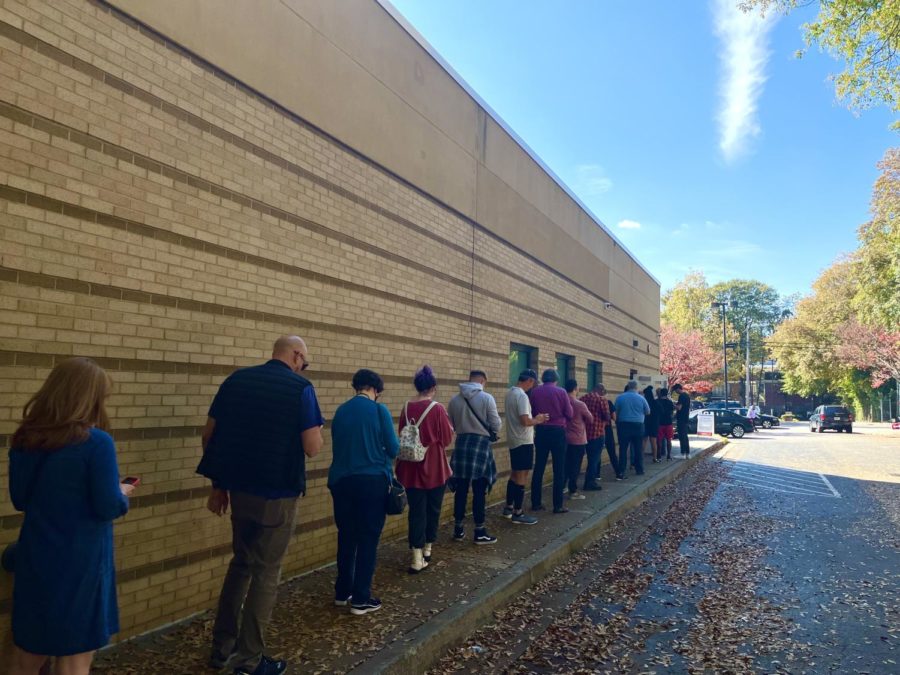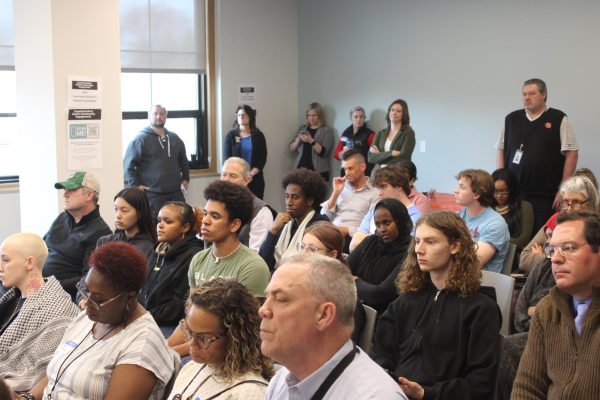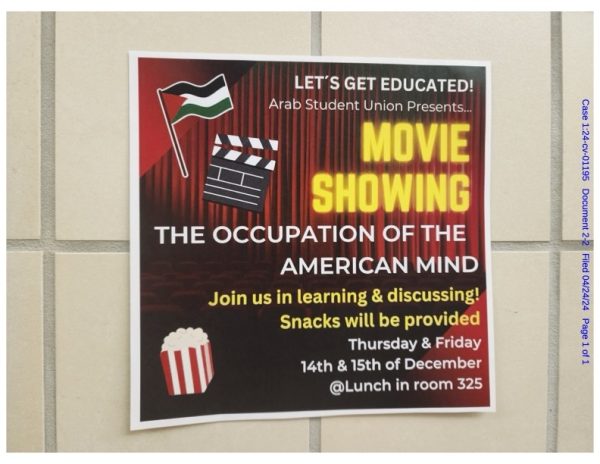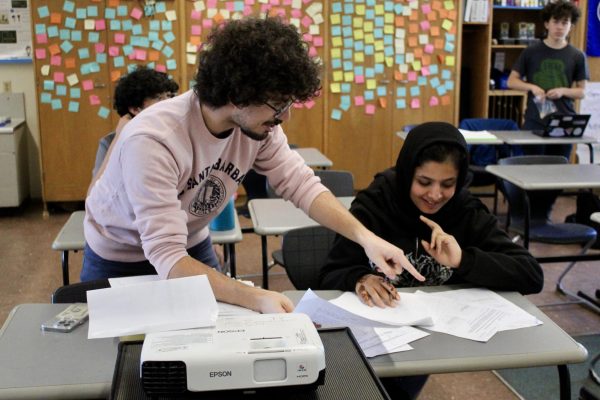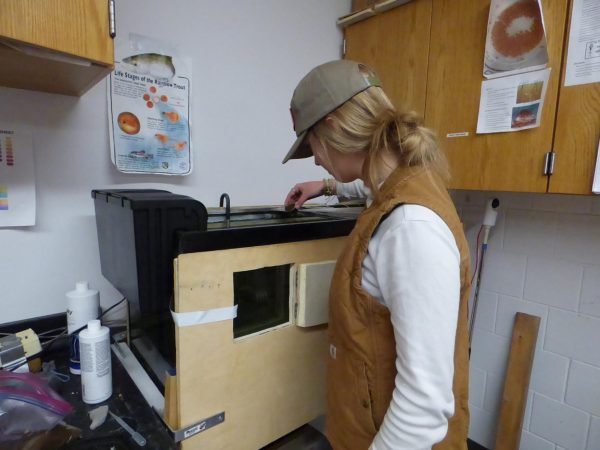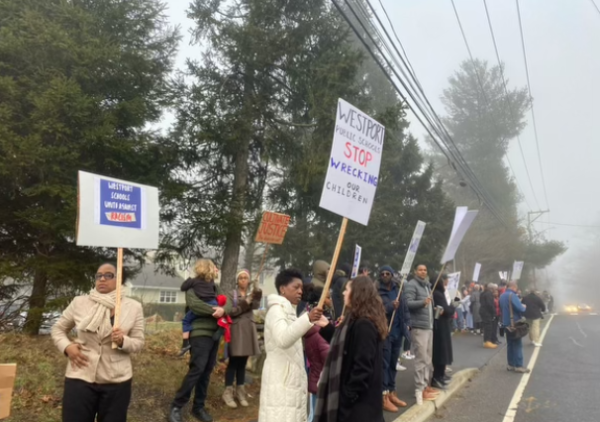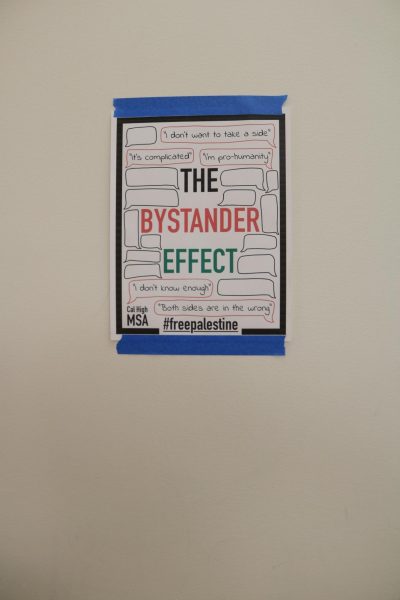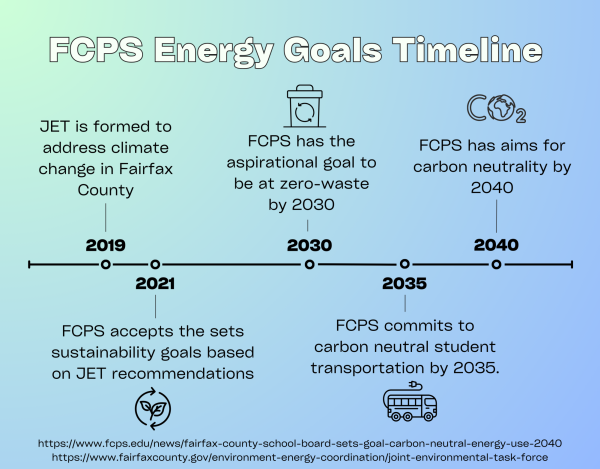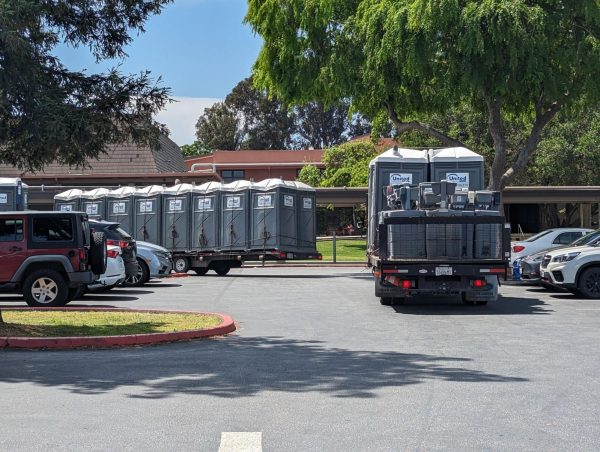Georgia voting bill limits voter accessibility
Ala
Fulton County residents wait in line to cast their early voting ballots at the Fulton County Library on Nov. 1.
November 8, 2022
Gov. Brian Kemp signed SB 202, a 98-page omnibus bill earlier this year changing Georgia’s voting laws. Georgians worry the new bill will negatively impact voter turnout due to the increased barriers for registration and voting in general.
With the goal of making voting “more secure,” the passing of SB 202 by the Georgia Legislature resulted in shifts of absentee ballot policies, new identification rules, an expansion of time for early voting and increased poll worker restrictions, providing citizens with the ability to question legitimate voters. Heather Hallet, a Midtown parent and board member of Fair Districts Georgia, has concerns surrounding the effects of SB 202.
“When people talk about voter suppression in 2022 in Georgia, they are probably talking about the Senate Bill 202,” Hallet said. “There are lots of provisions in Georgia and generally, some of them were designed to engineer a certain election outcome for specific people. Georgia is in the middle of ease of voting access, but it definitely looks like they are trying to tip the scales so that the outcome that they want is more likely.”
Backed by mostly Republican elected officials, the bill is perceived by some as a way to make voting more difficult after unexpected Republican losses during the 2020 elections.
“Right after the 2020 elections, Republicans kind of freaked out and stated that they wanted to make voting more secure as they believed the presidential election was stolen, yet they never produced any evidence of fraud,” said Krista Brewer, a reporter and writer for Political Peach News.“Nonetheless, they got busy passing what I view as more restrictive voting procedures. I call it voter suppression by a thousand tiny cuts: no food or water and an increased application process is just a handful of the things they did to make voting just a little harder in Georgia.”
During the pandemic, the use of absentee ballots was advertised as a quick and easy way to vote without exposure of COVID-19. The process involves dropping the form into a drop box, a locked structure operated by election officials where voters may deliver their ballots from the time they receive them in the mail up to the time polls close on Election Day. SB 202 has implemented restrictions on the number of drop boxes available in Georgia.
“Because of the pandemic, there were lots of drop boxes to make voting safer and more accessible,” Hallet said. “Now, every single dropbox has to be inside of a building and are only available during the hours of normal voting, meaning you can’t drop off your absentee ballot in the middle of the night. This was the result of the massive expansion of people using absentee ballots in favor of Democratic candidates, and the opposing side claims that it was a fraudulent election.”
Although voting by mail serves as an accessible way to vote, issues with verification and late submissions have arisen. In Georgia’s early voting period this year, 2,834 applications to vote by mail were rejected. More than half were rejected because of late submission, a rate that is seven times higher than in June 2020.
Along with drop boxes, mobile voting units were also deemed fraudulent and are now not allowed to be used in Georgia elections.
“The restrictions of the drop boxes and mobile units is ludicrous because of what we invested in them as they are off somewhere in storage,” Brewer said. “ This is making voting harder, especially for people with lower literacy, lower income and a lack of resources. Now, people without cars or who are disabled have to go park, walk and stand in line. It’s a lot harder for people with limited mobility.”
SB 202 now allows residents to question the legitimacy of other people’s voter registration, with just a phone call resulting in additional investigations and reviews.
“People don’t have to do much other than say they don’t think that person is a legitimate voter. Now, the County Election Board must approve and verify people,” Hallet said. “In Cobb County, there were 15,000 voter applications challenged and were predominately applications of students and African Americans. They had to renew all of these applications and in the end, not a single one was declared a successful challenge.”
At Midtown, a new club, Midtown High Votes, has emerged to encourage young people to register to vote. Led by junior President Imani Johnson and several other students, the organization’s goal is to educate those eligible to vote on their voting rights and the process of registering.
“We register everyone we can while holding events to educate people on what it means to vote,” Johnson said. “Before I got involved in this club, I wasn’t aware of all of the rules when it comes to voting. If you move, you have to change where you live in order to get your ballot updated, which is why it is so difficult for people to get access to absentee ballots or change their voter status. Education whenever it comes down to voting is something that is so new to people in our generation and is something Midtown High Votes wants to encourage.”
Johnson said although her efforts to get members of her community registered have yielded success, cultural circumstances can impact voter participation.
“I remember canvassing for a candidate for council and knocking on this older black man’s door, and I asked if he was registered. He responded by saying, ‘We don’t do that around here, we don’t vote.’” Johnson said. “It is important that we be intentional with the way we spend your teenage years by educating ourselves and those around us so we can change this culture of non-participation in our democracy.”
Many independent and partisan political organizations are working toward offsetting the impact of SB 202, such as Fair Fight. The organization was founded by Stacey Abrams following the 2018 Georgia governor’s race that was mired by accounts of voter suppression, particularly against Black voters.
“In Georgia, Brian Kemp has been the architect of voter suppression,” Matt Krack, Fair Fight’s press secretary, said. “As Secretary of State, he removed hundreds of thousands of voters from the rolls, held up the registration process for thousands of majority-Black would-be voters. As governor, he signed the anti-voting bill, which included many anti-voting provisions, such as limits on ballot drop boxes, prohibition on handing out food and water to voters in line and ID requirements. Fair Fight has been hard at work to educate voters about these changes and ensure every eligible voter who wants to cast a ballot is able to.”
Like many advocates for the expansion of voting rights, Krack said marginalized communities are hit hardest by the enforcement of SB 202.
“It is baked into the notion of our founding when entire groups of people were considered hardly even people, thus left unable to participate in our democracy,” Krack said. “In 2018, we saw a disproportionate number of voters of color in Georgia left waiting in long lines, caught up in the registration process and traveling farther to vote due to precinct closures. Republicans in power know these communities not only lean Democratic, but are a fast-growing component of our state’s electorate.”
Although SB 202 poses some barriers to voting, Krack believes that there will be a historic voter turnout this November for midterm elections.
“We witnessed historic levels of voter turnout this year in the primary, and we can expect even greater turnout this fall in the general election,” Krack said. “ As we celebrate historic voter enthusiasm, we must also learn from and educate voters on the significant statewide issues. From voters receiving incorrect information about their assigned precinct to election day technical issues that resulted in delays at the polls and incorrect ballots, the Secretary of State failed to ensure that all Georgia voters received accurate and timely information about how to make their voices heard at the ballot box.”
In order to combat restrictive voting policies, Krack encourages everyone to play a role in the democratic process, whether they are eligible to vote or not.
“If you are of voting age, make sure you are registered to vote and exercise that right each and every election,” Krack said. “By knocking on doors, calling or texting voters and having these discussions with your friends and family, you can easily play an active role in protecting our freedom to vote and our freedom to live. You do not have to have to study politics or work in government to claim your power and have your voice heard. We all have a part to play in building the future we want to see.”
This story was originally published on The Southerner on November 4, 2022.

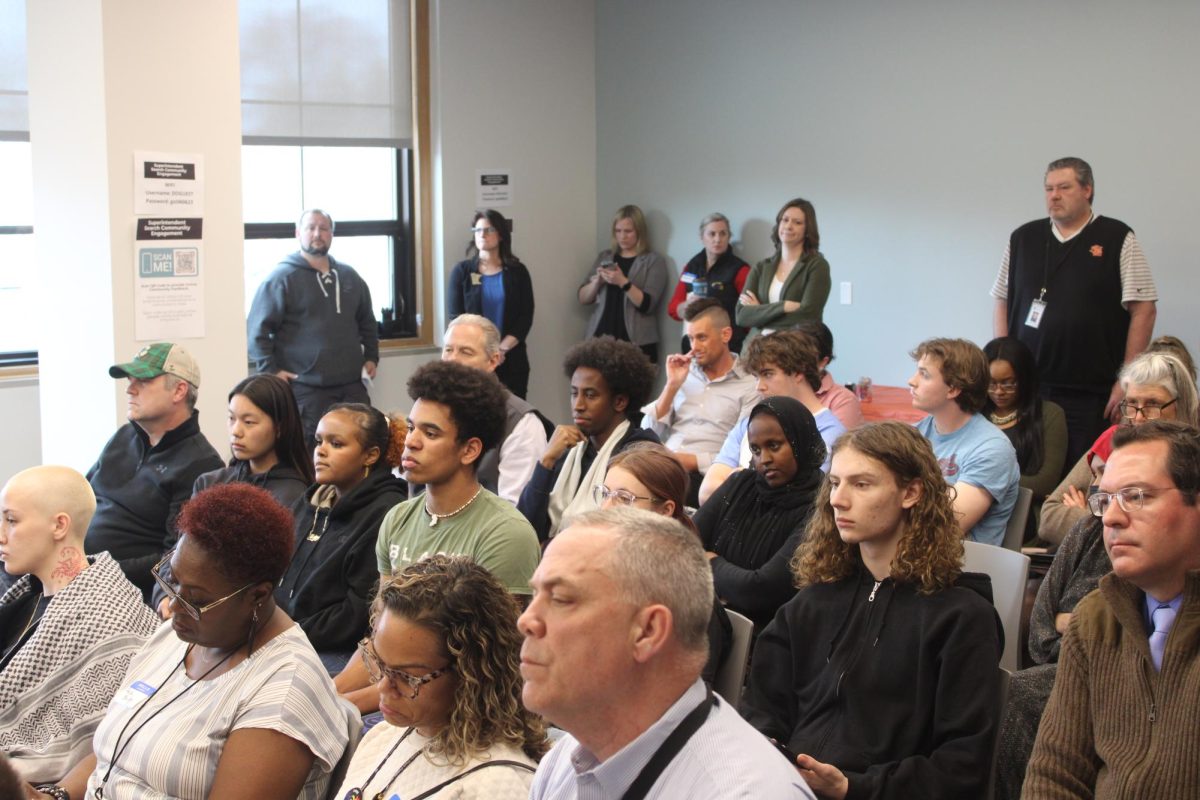
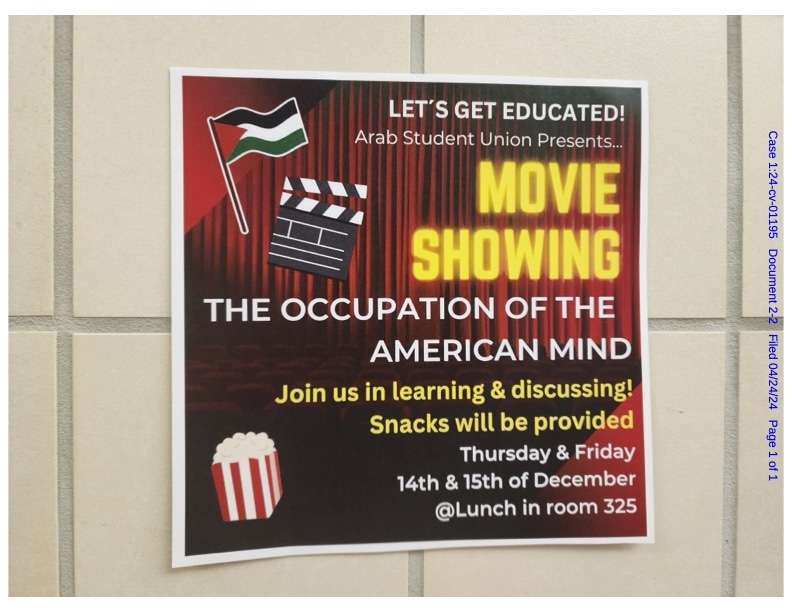
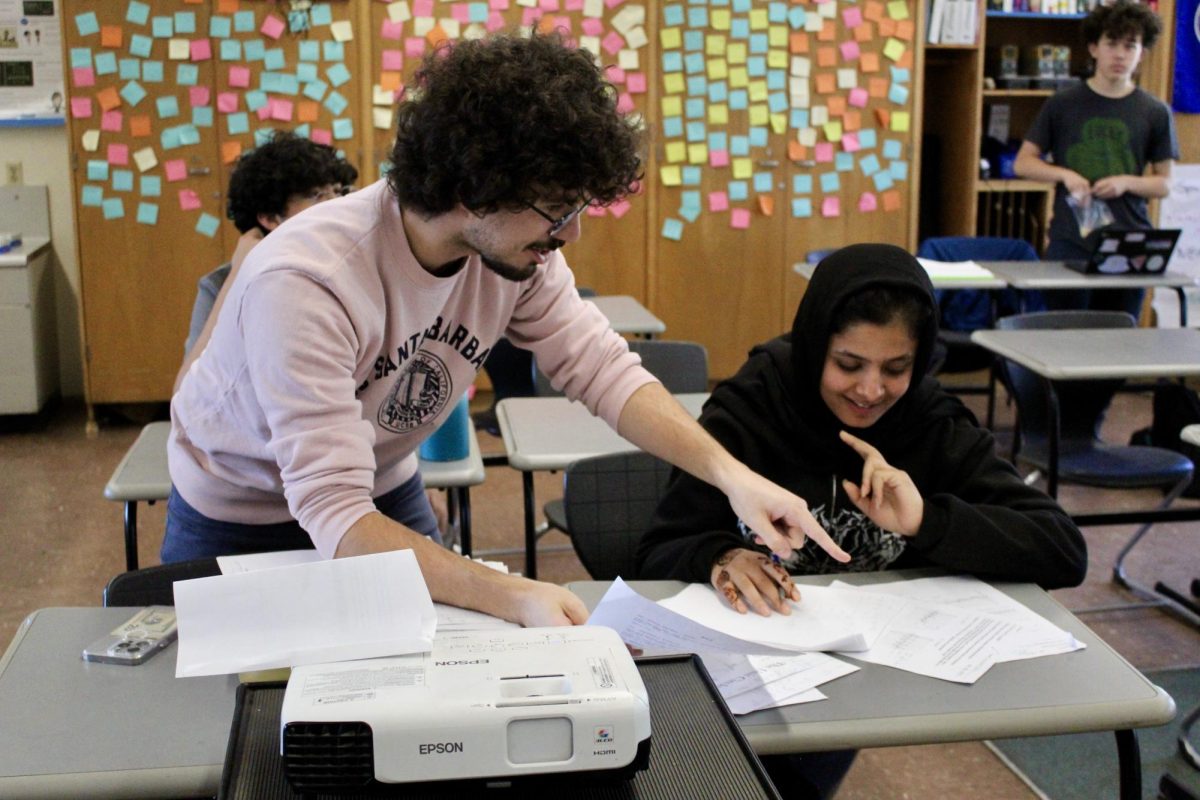
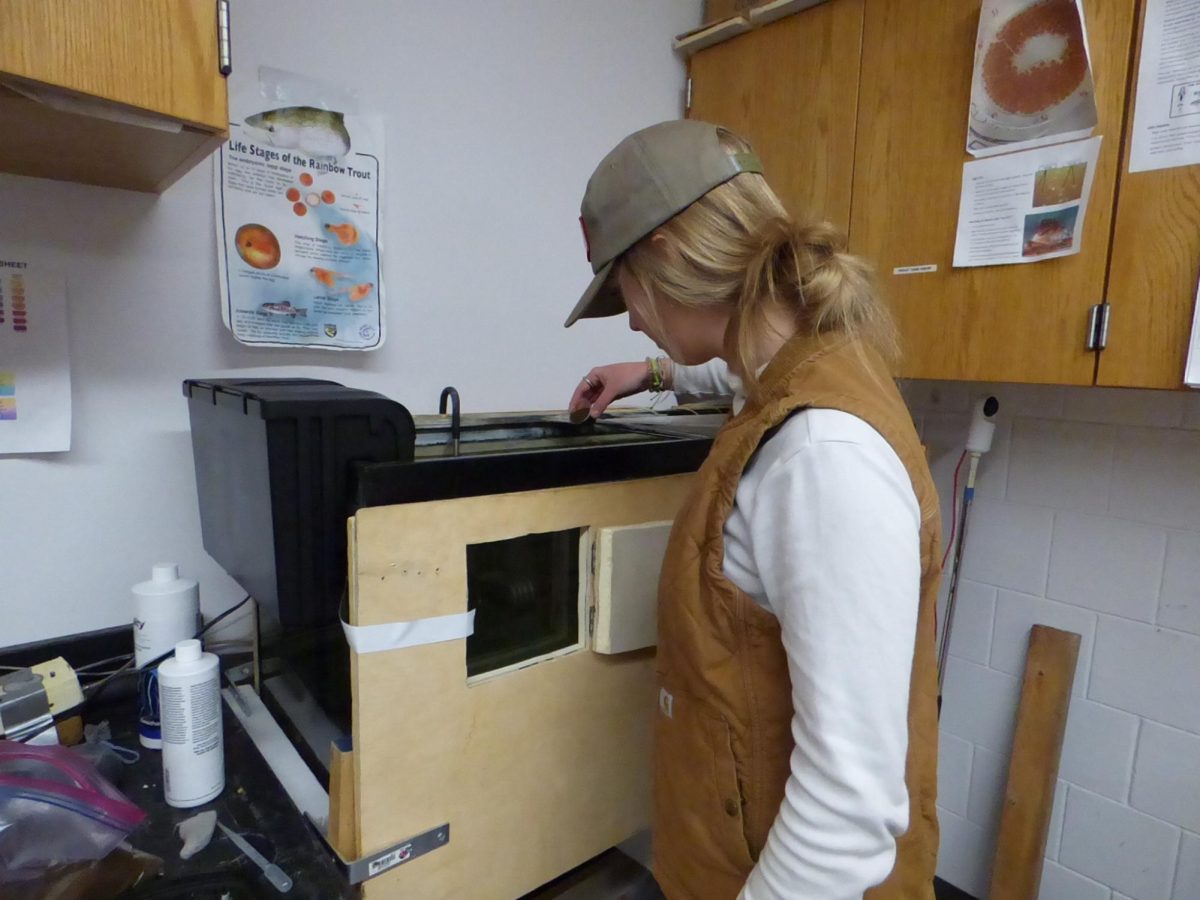


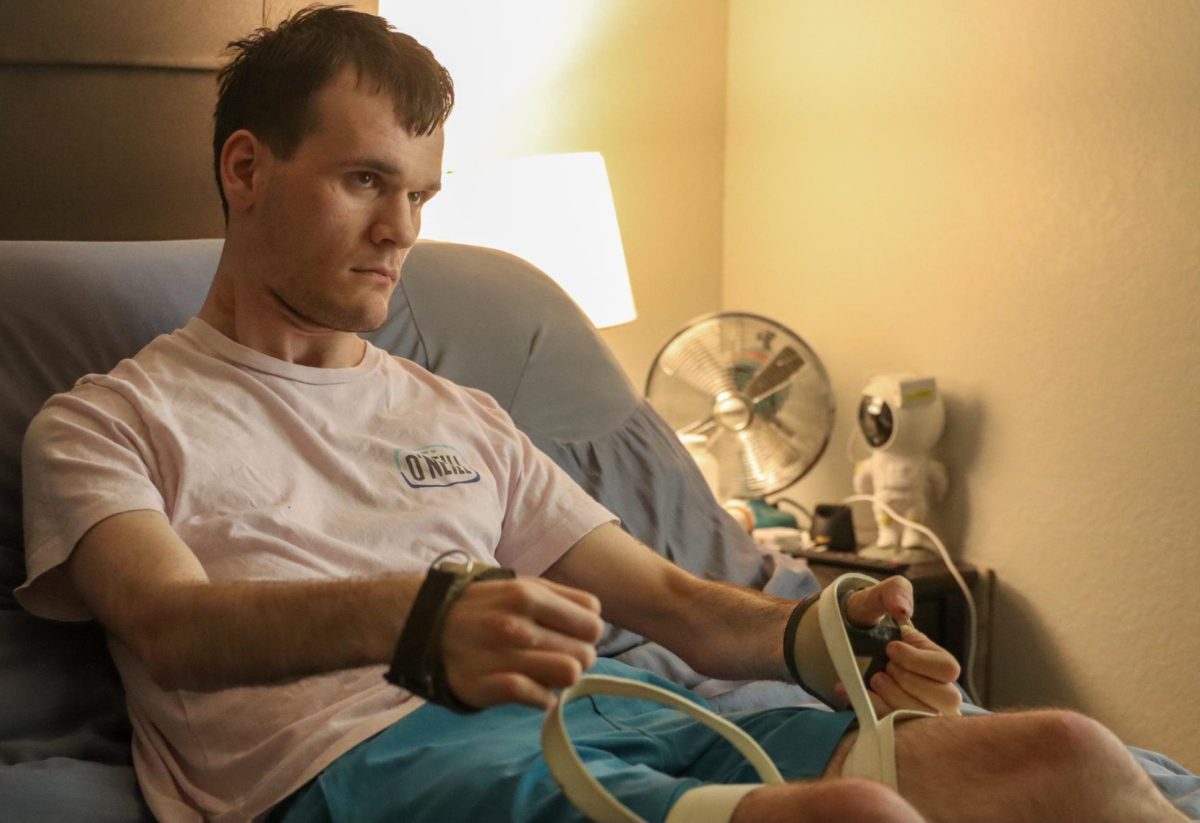



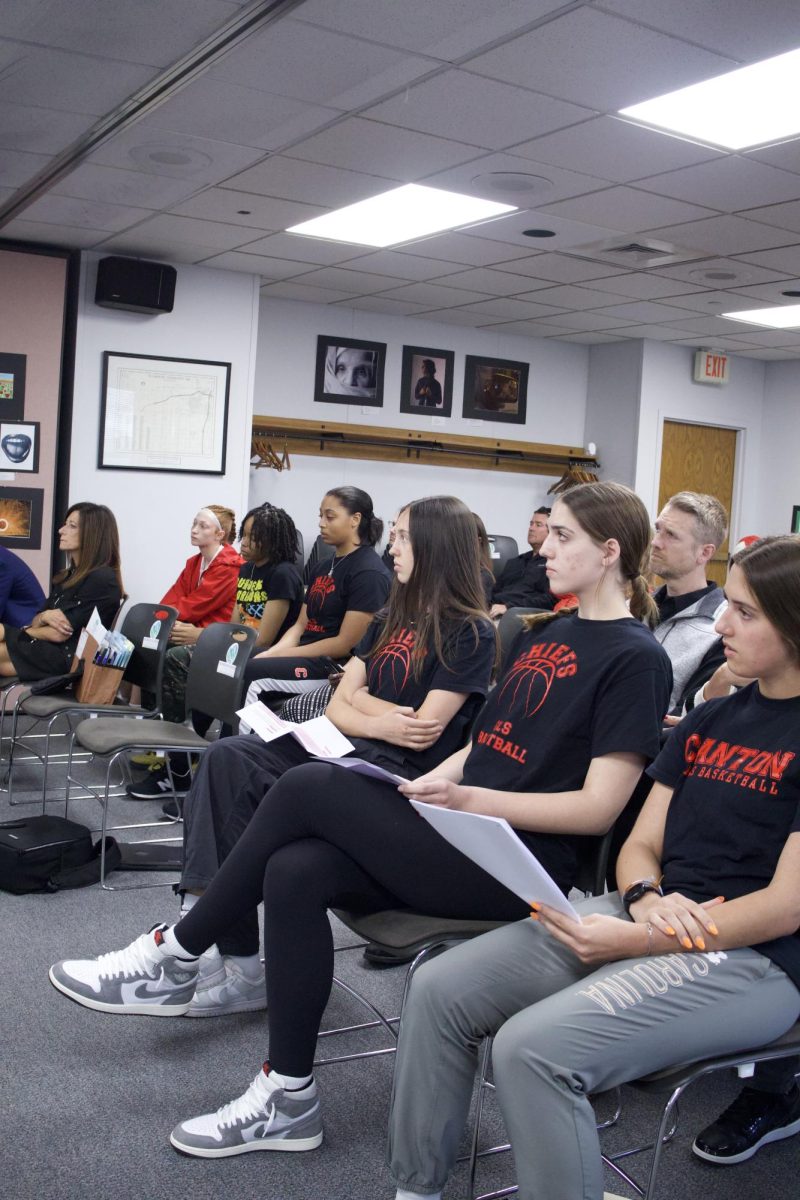

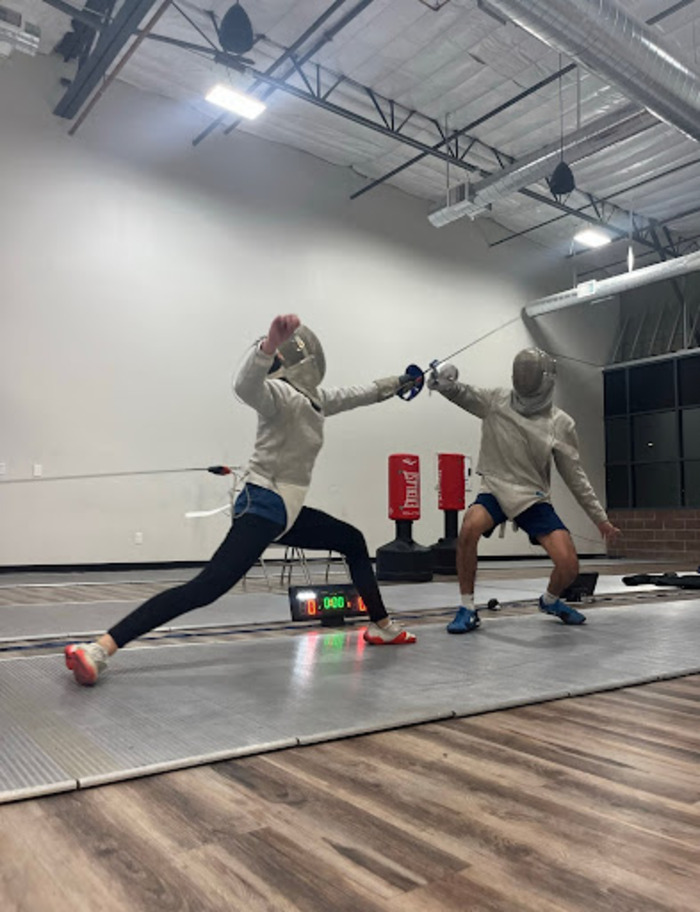

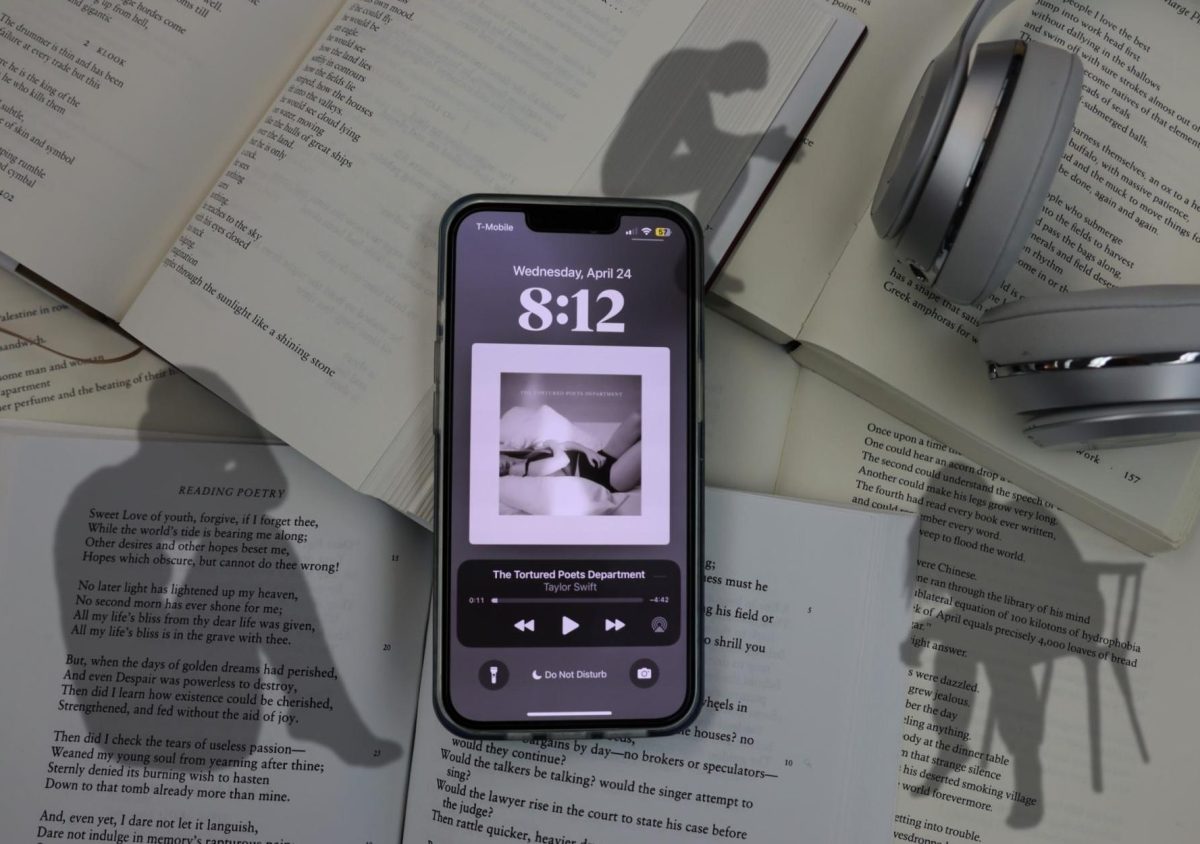














![IN THE SPOTLIGHT: Junior Zalie Mann performs “I Love to Cry at Weddings,” an ensemble piece from the fall musical Sweet Charity, to prospective students during the Fine Arts Showcase on Wednesday, Nov. 8. The showcase is a compilation of performances and demonstrations from each fine arts strand offered at McCallum. This show is put on so that prospective students can see if they are interested in joining an academy or major.
Sweet Charity originally ran the weekends of Sept. 28 and Oct. 8, but made a comeback for the Fine Arts Showcase.
“[Being at the front in the spotlight] is my favorite part of the whole dance, so I was super happy to be on stage performing and smiling at the audience,” Mann said.
Mann performed in both the musical theatre performance and dance excerpt “Ethereal,” a contemporary piece choreographed by the new dance director Terrance Carson, in the showcase. With also being a dance ambassador, Mann got to talk about what MAC dance is, her experience and answer any questions the aspiring arts majors and their parents may have.
Caption by Maya Tackett.](https://bestofsno.com/wp-content/uploads/2024/02/53321803427_47cd17fe70_o-1-1200x800.jpg)
![SPREADING THE JOY: Sophomore Chim Becker poses with sophomores Cozbi Sims and Lou Davidson while manning a table at the Hispanic Heritage treat day during lunch of Sept 28. Becker is a part of the students of color alliance, who put together the activity to raise money for their club.
“It [the stand] was really fun because McCallum has a lot of latino kids,” Becker said. “And I think it was nice that I could share the stuff that I usually just have at home with people who have never tried it before.”
Becker recognizes the importance of celebrating Hispanic heritage at Mac.
“I think its important to celebrate,” Becker said. “Because our culture is awesome and super cool, and everybody should be able to learn about other cultures of the world.”
Caption by JoJo Barnard.](https://bestofsno.com/wp-content/uploads/2024/01/53221601352_4127a81c41_o-1200x675.jpg)




